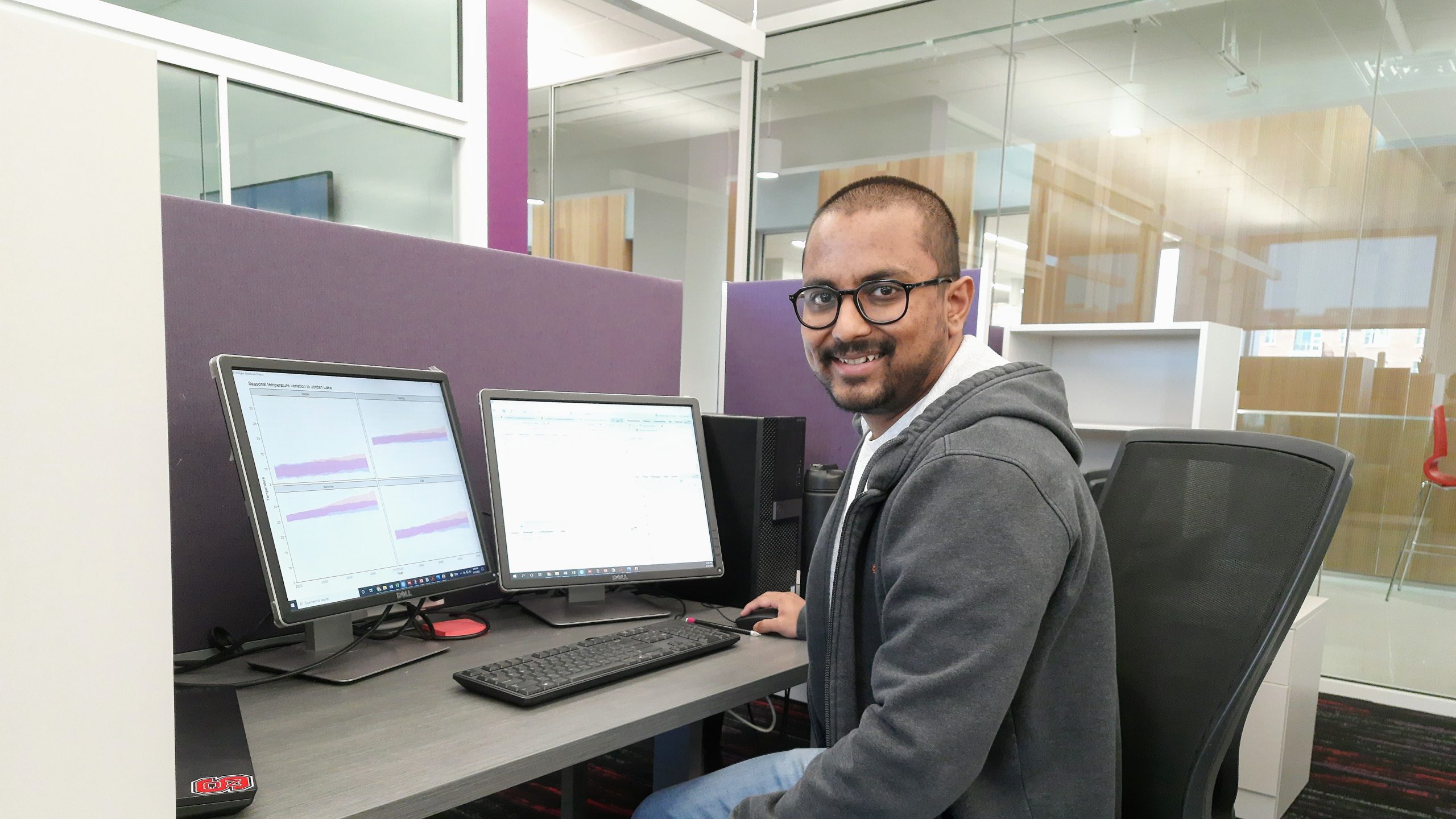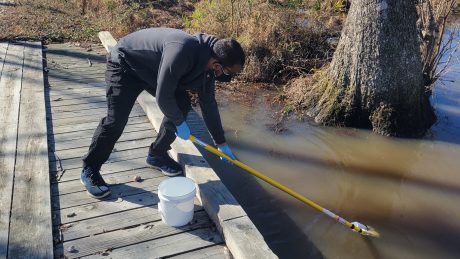Researcher Spotlight – Smitom Borah

2021-22 Global Change Fellow
PhD student, Department of Civil, Construction and Environmental Engineering
Advisor: Dr. Daniel Obenour
Every year the Southeast Climate Adaptation Science Center funds a multi-disciplinary cohort of Global Change Fellows representing colleges across NC State University. The current cohort of students represents the decadal anniversary of this program! Here are some highlights about 2021-22 Fellow, Smitom Borah and the applied research he’s conducting.
About You
What do you study?
My research involves understanding the different biogeochemical processes involved in aquatic nutrient dynamics and translating them into a modeling framework. The ecological models so developed are parsimonious and involve probabilistic methods to quantify the uncertainty associated with the model prediction. By using these models, I can simulate the nutrient concentrations in the freshwater systems as well as quantify the internal loading that is hard to routinely monitor. I also make use of these models to project future nutrient trends under different climate and management scenarios. Currently, I am working on a model that simulates the phosphorus dynamics in the water and sediments of Jordan Lake.
What (or who) influenced you to go into this field of study?
My interest in ecological modeling has its roots in my Master’s dissertation work that allowed me to experience firsthand how changes in land-use patterns and climate critically impaired a wetland. I saw how bad management decisions negatively impacted the lives of the tribal communities and wildlife in the surrounding areas. This experience helped me realize that by building reliable models, we can inform the policymakers and public about different future scenarios and thereby help them to develop better management strategies. I was also fascinated by how few mathematical equations were able to replicate the complex processes in nature to a great extent. All of these experiences convinced me to delve deeper into the world of ecological modeling.
What are three words your friends would use to describe you?
Hard-working, strong-willed, and ambitious.
About Your Research
 What results are you finding?
What results are you finding?
By modeling the phosphorus dynamics in Jordan Lake, we were able to predict the amount of phosphorus that is released back from the sediments into the overlying water. Our results suggest that this source of phosphorus input can be quite substantial in Jordan Lake and if it remains unchecked, it can delay the mitigation results by many decades. Additionally, we also found that climate change is likely to have a significant effect on the sediment phosphorus release as more phosphorus is likely to be released at higher temperatures. Sediment phosphorus is usually released in dissolved form that makes it convenient for plant uptake.
How can your research be used to inform management decisions?
A key aspect of my research is the application of the models to develop future trends under different climate scenarios and management strategies. These future trends are reported with the uncertainty associated with the predictions. So, the decision-makers can be presented with a range of future scenarios and thereby provide them tools to make more informed management decisions
How would you describe your research to an expert in another scientific field?
My research involves developing mechanistic models that simulate the nutrient dynamics in freshwater systems. I make use of machine learning and Bayesian inference to improve the predictive performance of the models and quantify the associated uncertainties. These models are then used to study how different factors such as climate change and management decisions are likely to affect the nutrient dynamics in the water column and sediment layers.
About Your Global Change Fellow Experience
How do you expect the SE CASC Global Change Fellows Program to impact you and your work?
The SE CASC Global Change Fellows Program provided me with the platform and tools to see the consequences of climate change from different perspectives. Climate change will affect every sphere of life to varying extents and it is crucial more than ever to work aggressively on mitigation measures. This program has helped me realize the gravity of the situation and rethink how I, as an individual and also as a researcher, can play my role in mitigation efforts. However, for me, the biggest takeaway from this program is introduction to different science communication techniques that can help take science from laboratories to the general public.
What has been the most rewarding part of being a Global Change Fellow?
It is hard for me to put in words how much the SE CASC Global Change Fellows Program has helped me grow as a researcher. From the field intensive meeting to bi-weekly seminars to Global Change Fellows seminars, I have had the opportunity to meet experts from different fields who are looking at the same problem of climate change but with different lenses. This is perhaps the most rewarding part of being a SE CASC Global Change Fellow.
What advice would you give to an incoming Global Change Fellow to get the most out of their experience?
My advice to an incoming Global Change Fellow is to make the most of the resources of SE CASC during the course of the Fellows program. I would personally recommend taking advantage of this program to improve oneself as a better science communicator.
